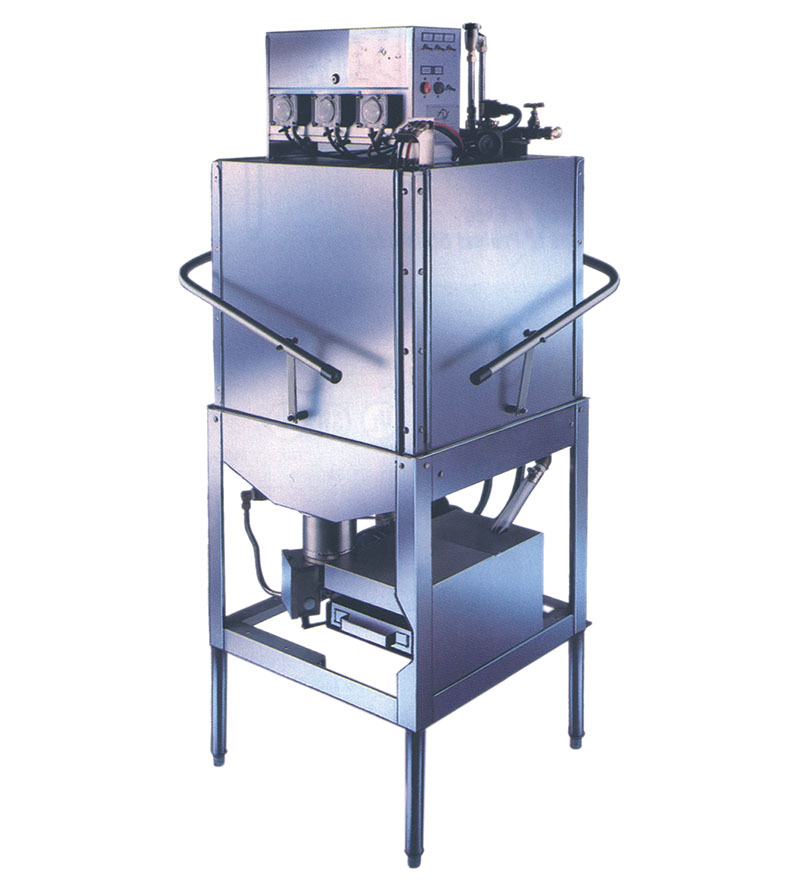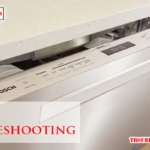Are you tired of standing in front of your dishwasher, wondering why it’s not working as it should? You’ve loaded it perfectly, added the detergent, and hit start, but something’s just not right.
Before you call in the professionals or consider replacing your appliance, you might want to try a few troubleshooting tips. You’ll discover simple and effective ways to identify and resolve common dishwasher issues. Imagine saving time, money, and frustration with just a few tweaks.
Let’s dive into the world of dishwasher troubleshooting, and soon you might find yourself with a kitchen free of dirty dishes and a dishwasher working like new.
Common Dishwasher Issues
Dishwashers are essential in modern kitchens, making cleaning easier. But sometimes, they encounter issues that can disrupt their function. Knowing common problems can help you troubleshoot and maintain your dishwasher effectively.
If your dishwasher leaves standing water, check the drain hose. It might be clogged or kinked. Inspect and clean any obstructions. Also, examine the filter for debris blocking water flow.
Dishwasher Not Cleaning Properly
Are dishes coming out dirty? Ensure spray arms are not blocked. Food particles can obstruct water jets. Clean them regularly. Also, check detergent type and amount. Incorrect usage affects cleaning.
Unusual Noises
Noisy dishwasher? Inspect for loose parts. A rattling sound could mean something is amiss. Additionally, items might be hitting the spray arms. Arrange dishes properly to avoid interference.
Leaking Dishwasher
Leaks can occur from worn door seals. Check for cracks or damage. Replace if necessary. Also, ensure the dishwasher is level. An uneven position can cause leaks.
If your dishwasher won’t start, verify the power connection. Ensure the plug is secure. Check the door latch; it must close firmly. A faulty latch can prevent operation.
Cloudy Glassware
Cloudy glasses after washing? Hard water might be the cause. Use a rinse aid to prevent mineral buildup. Also, check your water temperature settings. Hot water cleans better.
Dishwasher Won’t Start
Is your dishwasher refusing to start, leaving you with a pile of dirty dishes and a headache? Don’t worry; this common issue can often be resolved with a few straightforward checks. Whether it’s the power supply, the door latch, or the control panel, understanding these components can get your dishwasher back to its cleaning duties quickly. Let’s dive into the specifics and see how you can troubleshoot these problems like a pro.
Power Supply Check
First things first, make sure your dishwasher is actually receiving power. It’s surprising how often this simple step is overlooked. Check the power outlet by plugging in another device to see if it works. If it doesn’t, you might have a tripped circuit breaker or a blown fuse. Resetting the breaker or replacing the fuse could solve the issue. Imagine the relief when you find out it was just a quick fix!
Door Latch Inspection
A faulty door latch can prevent your dishwasher from starting. The latch must be properly engaged for the dishwasher to operate. Examine the latch for any visible damage or debris that might be preventing it from closing properly. Sometimes, just cleaning or adjusting the latch can make all the difference. Have you ever wondered how something so small could halt a big machine like a dishwasher?
Control Panel Reset
The control panel is the brain of your dishwasher. If it’s acting up, a simple reset might be all it needs. Find the reset instructions specific to your model—often, it’s just pressing a combination of buttons or unplugging the machine for a few minutes. A reset can clear glitches and restore normal functionality. Isn’t it fascinating how a quick reset can rejuvenate your dishwasher?
With these troubleshooting tips, you’ll be better prepared the next time your dishwasher doesn’t start. Addressing these areas could save you time and money, and give you a sense of accomplishment. So, which solution are you going to try first?
Water Not Draining
Water sitting at the bottom of your dishwasher is frustrating. It can also affect the efficiency of the appliance. Understanding the reasons behind this issue is crucial. Let’s explore some common causes and fixes.
Clogged Drain Filter
The drain filter catches food particles and debris. Over time, this can lead to clogs. A clogged filter stops water from draining properly. Regularly check and clean the filter. This simple task often solves the problem.
Blocked Drain Hose
A blocked drain hose restricts water flow. This blockage can cause water to back up. Inspect the hose for kinks or blockages. Gently straighten any kinks and remove debris. This ensures smooth water drainage.
Garbage Disposal Connection
Your dishwasher may connect to the garbage disposal. If it’s full, water can’t drain. Ensure the disposal is clear and functioning. Run the disposal to remove any blockages. This simple check can restore normal draining.

Dishes Not Cleaning Properly
Experiencing dishes not cleaning properly? Start with basic dishwasher troubleshooting. Check filters, spray arms, and water temperature for optimal cleaning performance.
Is your dishwasher leaving your dishes less than sparkling clean? This is a common issue that many people face, leading to frustration and the need to rewash everything by hand. Let’s dive into some simple troubleshooting steps that can help you identify and solve the problem, ensuring your dishes come out perfectly clean every time.
Spray Arm Obstructions
A blocked spray arm can significantly impact your dishwasher’s performance. Check if food particles or other debris are clogging the spray holes. Remove the spray arm and rinse it under warm water to clear any blockages. If necessary, use a toothpick to gently dislodge stubborn bits. Do you regularly inspect your spray arm for obstructions?
Detergent Usage
Using the right amount of detergent is crucial for effective cleaning. Too much detergent can leave a residue, while too little may not clean thoroughly. Consider the hardness of your water when selecting the type and amount of detergent. If you have hard water, using a bit more detergent can improve results. Have you tried adjusting your detergent usage based on your water type?
Water Temperature
The temperature of your water plays a crucial role in washing performance. If the water is too cold, detergent won’t dissolve properly, affecting cleanliness. Ensure your water heater is set to at least 120°F (49°C) for optimal results. Run the hot water tap in your kitchen sink before starting the dishwasher to ensure hot water enters the machine immediately. Are you confident your dishwasher is receiving water at the right temperature? By addressing these common issues, you can enhance your dishwasher’s efficiency and enjoy spotless dishes after every cycle. Take a moment to check these elements, and you might find a simple solution to your cleaning woes.
Strange Noises During Operation
Experiencing strange noises during your dishwasher’s operation can indicate potential issues. Common causes include loose parts, clogged filters, or misaligned spray arms. Regular maintenance and inspection help prevent these unsettling sounds and ensure efficient performance.
Strange noises during a dishwasher’s operation can be both puzzling and concerning. You might find yourself wincing every time you press start, wondering if the machine is on its last legs. However, these sounds often point to specific issues that you can address with a bit of troubleshooting. Let’s dive into some common causes and what you can do to silence your dishwasher.
Loose Items Inside
One of the simplest causes of strange noises is loose items inside the dishwasher. You might have a fork or spoon rattling against the rack, which can create an alarming clatter. To prevent this, ensure all utensils are securely placed in the cutlery basket and that nothing is protruding through the rack. Take a moment to check for small items that might have fallen to the bottom of the machine. Have you ever found a stray lid or cup rolling around? These small adjustments can make a world of difference.
Worn Out Bearings
Worn out bearings can also be a culprit behind unusual sounds. Over time, the bearings in your dishwasher’s motor or pump assembly can wear out, leading to a grinding or squealing noise. This isn’t something you should ignore. If you’ve noticed the noise worsening over time, it’s a good idea to inspect these components. Replacing worn bearings can often be a cost-effective solution, extending the lifespan of your appliance. Have you ever ignored a noise until it turned into a bigger issue? Don’t let that happen here.
Pump And Motor Issues
Pump and motor issues are another potential source of noise. A malfunctioning pump can produce a buzzing or humming sound, indicating it’s struggling to perform its function. Similarly, if the motor is on the fritz, you might hear a loud thumping or banging. These sounds suggest it’s time for professional intervention. Before you call for help, try cleaning any filters or removing debris that might be obstructing the pump. Sometimes, a simple cleaning can save you the headache and cost of a repair. Have you ever been surprised by how a quick fix solved a lingering problem? It’s worth a shot. Addressing these noises promptly can prevent further damage and keep your dishwasher running smoothly. Have you tried any of these solutions before? What worked for you?
Leaking Water
Experiencing a dishwasher that leaks water can be frustrating. It interrupts the smooth operation and can cause damage to your kitchen. Understanding the reasons behind the leaks can help you fix the issue quickly. Let’s explore some common causes.
Door Seal Damage
The door seal is essential for preventing water from escaping. It can wear out or get damaged over time. Carefully inspect the seal for any signs of tears or wear. Replacing a damaged seal can often solve the leaking problem.
Overfilled Dishwasher
Too many dishes can cause water to leak from the dishwasher. Make sure to load dishes properly and avoid exceeding the capacity. This helps maintain the balance and prevents water from spilling over the edges.
Loose Connections
Check the connections between hoses and water lines. Loose connections can lead to leaks. Tighten any loose fittings or replace faulty hoses. Ensuring secure connections helps maintain the efficiency of the dishwasher.
Error Codes And What They Mean
Understanding dishwasher error codes helps in diagnosing issues quickly. These codes identify problems like blocked filters, drainage issues, or faulty sensors. Knowing their meanings aids in efficient troubleshooting and maintenance.
Error codes on your dishwasher can feel like a foreign language, but understanding them can save you time and money. These codes are your dishwasher’s way of telling you something is wrong, and they point you toward a solution. By knowing what these codes mean, you can troubleshoot issues more effectively and get your dishwasher back to its best performance.
Common Error Codes
Every dishwasher model may have different error codes, but some are universal. The E1 code often indicates a water supply issue. You might want to check if the water tap is turned on or if the hose is kinked. The E4 code usually points to a leakage issue. Inspect the bottom of the dishwasher for water and ensure the door seal is intact. Have you seen an E15 code? This could mean that there’s water in the base of the appliance. Dry it out and look for any leaks.
Resetting The Dishwasher
If the error code doesn’t clear, resetting the dishwasher might help. Start by turning off the appliance and unplugging it from the power source. Wait for about 5 minutes before plugging it back in. This simple reset can sometimes clear stubborn error codes. If the error persists, consider consulting your dishwasher’s manual or contacting customer support. Is it time to call in professional help? Decoding error codes can sometimes reveal underlying issues that need expert attention.

Routine Maintenance Tips
Keeping your dishwasher in tip-top shape isn’t just about solving problems when they arise; it’s about preventing them altogether. Routine maintenance tips can save you from unexpected breakdowns and costly repairs. By incorporating simple habits into your weekly and seasonal cleaning routine, you can ensure your dishwasher runs smoothly and efficiently.
Regular Cleaning
Regular cleaning is the cornerstone of a well-functioning dishwasher. Have you ever noticed a funky smell when opening the dishwasher? It’s a sign that your machine needs a good scrub. Remove any leftover food debris and wipe down the interior with a damp cloth.
Consider using a dishwasher cleaner once a month to keep the interior fresh. It’s quick, easy, and ensures your dishes come out sparkling every time. You might be surprised at the difference it makes in the machine’s performance.
Inspecting Components
Inspecting components might sound technical, but it’s straightforward. Check the spray arms—they often get clogged with food particles. Simply removing them and rinsing under hot water can prevent cleaning issues.
Also, inspect the door seal for cracks or mold. A damaged seal can lead to leaks, which are a hassle to deal with. Keep it clean and pliable with a wipe down using a damp cloth.
Seasonal Checks
Seasonal checks are a proactive way to keep your dishwasher running smoothly. Every season change, take the time to examine the water inlet valve. It’s crucial for maintaining proper water flow and pressure.
Another seasonal task is cleaning the filter. If you’ve ever wondered why your dishes aren’t as clean as they used to be, a clogged filter might be the culprit. Remove and rinse it under warm water to improve performance.
These maintenance tips are simple yet effective. What small changes can you make today to ensure your dishwasher stays in excellent condition tomorrow?
Frequently Asked Questions
Why Is My Dishwasher Not Starting?
Check the power supply. Ensure the door is properly closed. Inspect control settings.
What Causes A Dishwasher To Leak Water?
Leaking can occur due to a damaged door seal. Check for clogs or loose connections in hoses.
How Do I Fix A Dishwasher Not Draining?
Clean the filter and drain hose. Check for blockages. Inspect the pump for issues.
Why Is My Dishwasher Making Loud Noises?
Loud noises may mean a loose part or debris. Check the spray arm and motor.
How To Remove Bad Smells From A Dishwasher?
Clean the filter and drain. Run a cycle with vinegar. Check for food debris inside.
Conclusion
Troubleshooting your dishwasher doesn’t have to be complicated. Start with simple checks. Examine power connections and door latch. Check water supply and filters. Listen for unusual noises. Look at error codes for clues. Regular maintenance helps prevent issues. Clean your dishwasher monthly.
This keeps it running smoothly. Always consult the manual for specific guidance. Call a professional if problems persist. They can diagnose and fix major issues. A little effort now saves trouble later. Keep your dishwasher in top shape. Enjoy spotless dishes and a happy kitchen.






